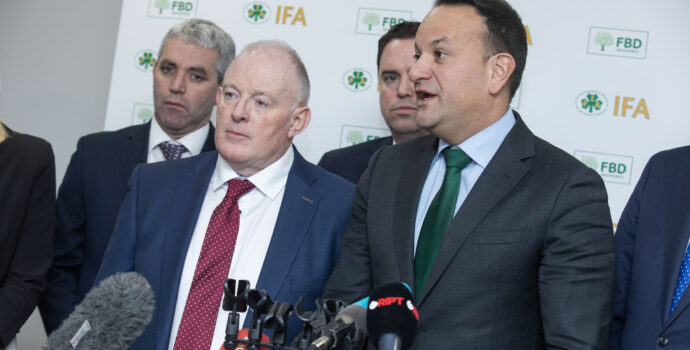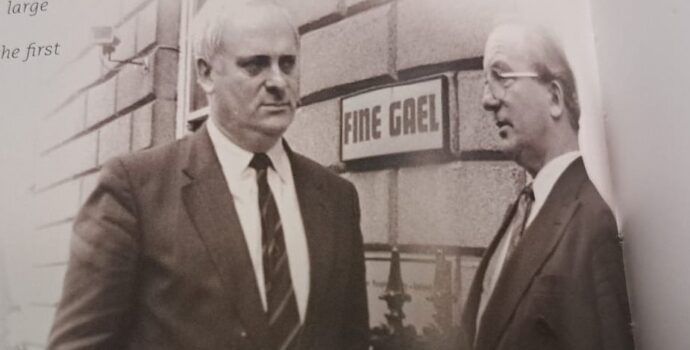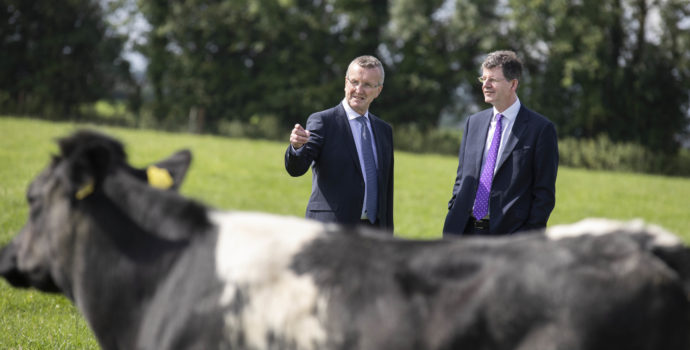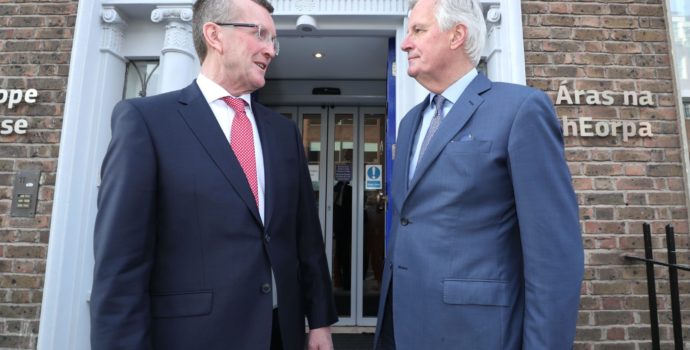Address by IFA President to Mark 50 Years of Irish Farming in the European Union
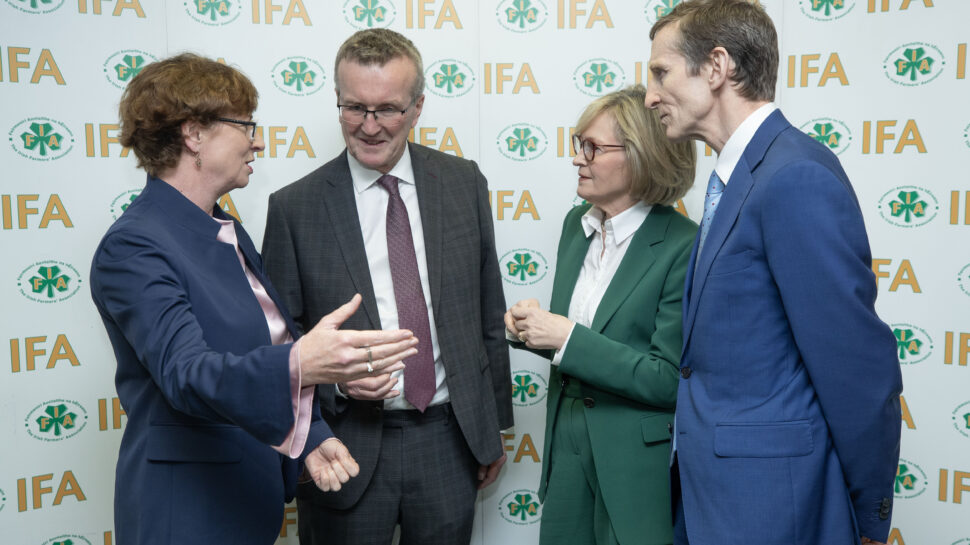
Commissioner, former IFA Presidents, invited guests, members of our National Council.
You are very welcome here today to the Irish Farm Centre to mark 50 years of Irish farming in the European Union.
It’s fitting that we gather here in this building, which opened in 1972.
Prior to that, NFA and IFA had its headquarters in Earlsfort Terrace, a stone’s throw from the Four Provinces Ballroom on Harcourt St.
That was the venue where farmers gathered on Jan 6th, 1955 to formally establish the National Farmers’ Association.
Things were very tough for farmers in the 1950s and 60s.
In 1966 and 1967, farmers came into conflict with the Government. We had the Farmers’ Rights March to Dublin 1966 and farmers being jailed in 1967.
Hope was in short supply.
But hope did come from the prospect of joining what was then called the European Economic Community (EEC).
A referendum to join was passed in May 1972 and we became members on January 1st, 1973.
In preparation for the referendum in May, 1972, IFA set up a National Referendum Committee, chaired by one Joe Rea.
The Farmers Journal also took a strong stance in favour of a Yes vote.
We will hear from Matt Dempsey later who will give us his thoughts on what membership has meant to the farming community.
IFA as an organisation has really embraced European participation. We participated fully in COPA and we established a full-time office in Brussels.
Liam Mac Hale who heads up that office is here with us today.
Our involvement in COPA has been very important in building alliances with other EU farming organisations. Throughout our involvement, many IFA Presidents have served as Vice Presidents of COPA but only one served as President.
That was Padraig Walshe. Sadly, he is no longer with us but we remember him here today.
Earlier this year, we held an event with ICOS in Brussels to mark 50 years of the IFA office there. I want to acknowledge ICOS President Edward Carr who is here today.
We have worked closely with ICOS in Brussels through the years and continue to do so today.
Our former President Donie Cashman served as President of COGECA, which represents the co-ops.
The transformation of our sector since we joined the EU has been phenomenal.
But we have had many ups and downs along the way.
Anybody who remembers what farming looked like 50 years ago will see the scale of what has been achieved through hard work, the Common Agricultural Policy and access to the EU market.
Overall, the first 50 years of the European Union have been a huge positive for Irish farmers and Irish society in general.
Our involvement in the EU has driven economic growth and improved operations at farm level.
However, many Irish farmers are genuinely concerned about the EU’s direction of travel and its potential impact on their business.
Making laws and regulations without proper consideration for the people most affected is not a good way to do business.
It is vital that the European Union respects the unique role played by farmers.
The rules for farmers are now being written by people who have little understanding of how farming works.
We saw another example of this yesterday when an EU Commissioner visited Ireland on the invitation of the Taoiseach to see our unique grass-based production system.
Yet, he didn’t visit a farm and made a decision that will have a huge impact on farmers.
It was the former US President Eisenhower who said “Farming looks mighty easy when your plough is a pencil and you’re a thousand miles from the cornfield”.
Next year will see elections to the European Parliament and a new European Commission appointed.
The European Union must make a bigger effort to take farmers views on board.
For those of us committed to the European project, it is vital that farmers are at the heart of EU farm policy.
As we set out on the next 50 years, there are wider challenges too. Our neighbours, the UK, who joined with us in 1973, have now left.
I want to welcome UFU President David Brown, who is with us here today. Thankfully, despite Brexit, relations with the UFU and our sister organisations in the UK continue to be strong.
While the impact of Brexit has yet to be felt, the fears for future divergence are very real.
Farmers across the EU and indeed the UK have so much in common. Our primary role is to produce food. EU food output is down 3% this year in volume terms. Food security cannot be taken for granted.
We cannot forget that a farmer’s primary role is to produce food.
That was the case when we joined the EU in 1973 and it’s still the case today.
Despite the challenges I am optimistic for the future. I think there is a growing realisation that food security needs to be a greater priority within the EU.
Farmers will be needed more than ever. We look forward to the next 50 years.

